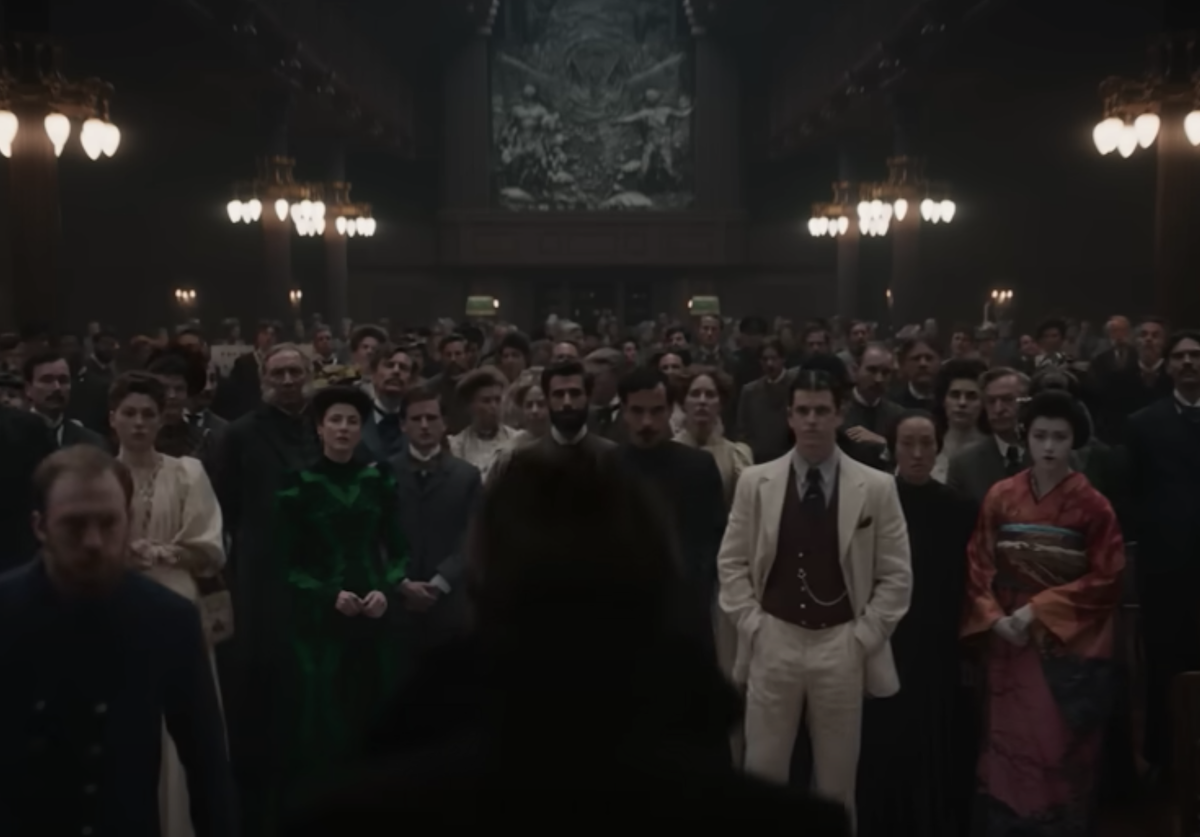
‘1899’: How the Cast and Crew Coordinated 12 Different Languages for the Netflix Mystery Sci-Fi Series
As if the mind-bending plot wasn’t enough of a challenge, the script for Netflix’s 1899 includes 12 languages. For viewers, Netflix not-so-kindly defaults to dubbing all the languages to English for many. (Viewers, check your setting immediately. It’s not a matter of preference, it’s a matter of understanding the show).
1899’s cast and crew had a huge undertaking to reckon with when filming the multi-cultural and multi-lingual show.
Creating the world of Netflix’s ‘1899’
The first eight-episode season of Netflix’s 1899 follows a steamship full of immigrants from all different backgrounds bound for New York.
Each character seems desperate to get the ship into port, and chaos ensues when the captain decides to reroute and investigate a missing ship, the Prometheus. But when the missing ship is found, untold terrors await, and the passengers must put aside their differences to survive.
Created by Jantje Friese and Baran bo Odar (who also created Netflix’s 2017 hit, Dark), 1899’s premise was born of the refugee crisis in Europe in 2015 and 2016.
Speaking to The Hollywood Reporter, Friese says that the idea behind the series was to confine Europe on a ship and put all the various nations and cultures under extreme pressure in a kind of experiment.

As such, an integral part of Netflix’s 1899 is the language barrier between the passengers (again, you must not watch this series dubbed). Friese and bo Odar built a staff writing team of over six nationalities to authentically represent the languages.
1899’s languages made for ‘Frankenstein’ scripts
Writing a series in so many different languages was no small feat, but, as European filmmakers, 1899’s creators say they saw an “underrepresentation” of European cultures in Hollywood. As such, they sought to create an authentic experience for 1899’s cast, crew, and viewers.
“We wanted to explore this heart of Europe,” Friese tells Deadline, “where everyone comes from somewhere else and speaks a different language, and language defines so much of your culture and your behavior.”
Breaking down the process to IMDb, bo Odar says that all of the scripts were initially written in English, then the multi-lingual sections were translated, and bo Odar used phonetic scripts while filming.
“Our scripts look like Frankenstein monsters,” Friese tells The Hollywood Reporter, describing the dual-dialogue scripts that featured English alongside translated dialogue for the actors.
Each script also had a script note with details on the languages (like the nuances of formal vs. informal French). IMDb notes there were language assistants on set to further ensure authenticity.
If it sounds confusing, that’s because it was. In the end, bo Odar abandoned hopes of following the dialogue and reading during scenes and instead chose to see the characters as musical instruments. He focused not on which of 1899’s languages was being spoken but on how it was spoken through body language and tone.
The cast and crew experience on ‘1899’
Following an initial table read via Zoom in which the cast came together, speaking all of 1899’s languages around one virtual table, the actors describe the monumental process that was filming Netflix’s mystery series 1899.
For Andreas Pietschmann (who plays Captain Eyk Larsen), the experience was what he calls “a great gift.” Speaking to Tudum, the actor says he relished understanding all of 1899’s languages and cultures during filming. Poetically, Pietschmann says this (the effort to understand others) is “the first step to tolerance, and I think that is what is lacking most in this world.”
In her interview with Tudum, Emily Beecham (who plays Maura Franklin) shares her co-star’s sentiments saying, “We’re all the same at the end of the day. We’re all humans trying to survive.” But, when asked how she kept track of 1899’s languages and cultures throughout the series, the actor confesses, “I had a map. I don’t know how else I could’ve done it!”


